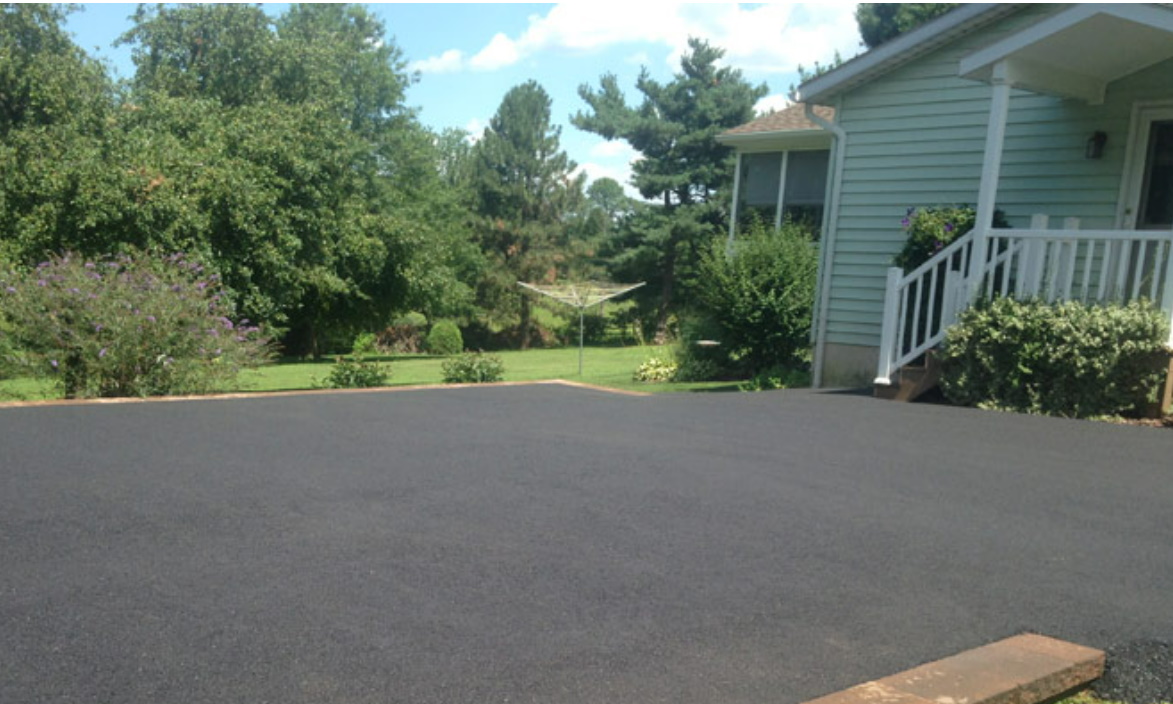Bitumen Vs Asphalt what are the differences?
- Written by NewsServices.com

You may have heard the terms bitumen and asphalt before, and they often get used interchangeably with one another, although they are completely separate products with key differences. In this post, we'll share everything you need to know about bitumen and asphalt and what the differences are between the two.
What is bitumen?
Bitumen is a binder that is made from petroleum and is an integral ingredient in asphalt. Bitumen offers great adhesion and protects against external elements such as rain, oil etc. Due to its superior durability and resistance against contaminants, it's the perfect binding solution for hardwearing locations such as driveways and roads.
Bitumen can be formulated via various methods depending on the application however, in most instances, it is made using distilled crude oil. Distilled crude oil is a process that involves separating the light material from the dense and sticky material. This sticky material is thick and perfect for use in asphalt. It binds aggregate, stones and sand into the asphalt to create a long-lasting surface that offers superior performance.
Tar is another material that often gets mistaken for asphalt or bitumen, although it's different again. Tar is a binding agent that gets incorporated with aggregate to make tarmac.
What is asphalt?
Asphalt is sustainable paving material that is formulated with a combination of aggregates, sand, fillers, and bitumen. Bitumen is what keeps the mixture together. There are three main types of asphalt solutions and they are hot, warm, or cold.
When asphalt is laid, it is normally done using several layers including unbound and bituminous-bound materials to create a strong and structurally sound pavement.
A breakdown of both bitumen and asphalt
Here is a breakdown of asphalt and bitumen and what they offer in terms of performance and durability:
Durability
Bitumen can be laid with aggregate rolled over the top to provide a pavement solution but, asphalt tends to be much more durable. This mostly comes down to the depth that the pavement is laid. Asphalt is typically around 20 to 40mm thick whereas bitumen is anywhere from 10 to 20mm thick. This impacts their lifespan greatly, and you can expect asphalt to last approximately 20 years and bitumen 5 to 10 years in comparison.
For low impact areas, such as pathways, bitumen is a cost-effective and suitable solution. For more high traffic areas, asphalt is recommended to ensure longevity over time.
Permeability
For a high use area such as a bitumen driveway brisbane, car park or road, the last thing you want the asphalt to be is permeable. Why? Because if water can permeate through the asphalt and into the lower subgrade materials, this will cause instability and issues such as potholes will typically arise. Bitumen doesn't offer the same level of protection, and permeability is much more likely to occur.
Resistance to extreme temperatures
Asphalt stands up to extreme temperatures rather well and can usually tolerate such conditions without any ill effects. Bitumen can be prone to softening in extreme temperatures which can become damaged if a car is driven over it. This will typically cause a dent in the surface, and water will then pool in this when it rains. Over time the water will permeate through the bitumen and cause damage to the integrity of the area. Not to mention, it can become a safety hazard if left untreated.
How much friction they offer
Asphalt is well known for its friction-reducing benefits. This allows vehicles to travel much more efficiently and can help to minimise the amount of fuel the car uses as well as emissions of carbon dioxide. Bitumen on the other hand is known to do quite the opposite. As the friction is greater, so is the fuel consumption and the emissions.
The cost
Bitumen is the front runner in terms of cost, so if you are looking to install a path or walkway, bitumen is an effective and affordable solution. If you are looking for something like a driveway or car park, bitumen can work, but it's likely going to need a lot more repairs and attention along the way. Asphalt does cost more initially, but the money you can save from repairs and maintenance can make it a cheaper option in the long run.
Skid resistance
Asphalt is more skid-resistant as it's smoother, and this has several advantages, some of them are noise reduction and minimising tyre wear. Bitumen tends to wear at tyres faster and creates much more noise when it's driven on. Asphalt is a much safer material to drive on as you can slow down more efficiently and safely.
Bitumen vs asphalt: The verdict
As outlined in the post, asphalt is a front runner for durability and performance, and while it does cost slightly more to install, it's worth it in the long run due to the low maintenance they need once installed. Both are quality pavement choices, and the best one for your project will depend on the specifics of the job.
Whichever you choose for your pavement project, always remember to hire a reputable contractor to complete the work. This will ensure you are choosing the right product for the job and that it will stand the test of time.
For all your asphalt and bitumen needs in South East Queensland, contact the professionals here at Bitumen Constructions! We specialise in all facets of both bitumen and asphalt and offer obligation-free quotes.





